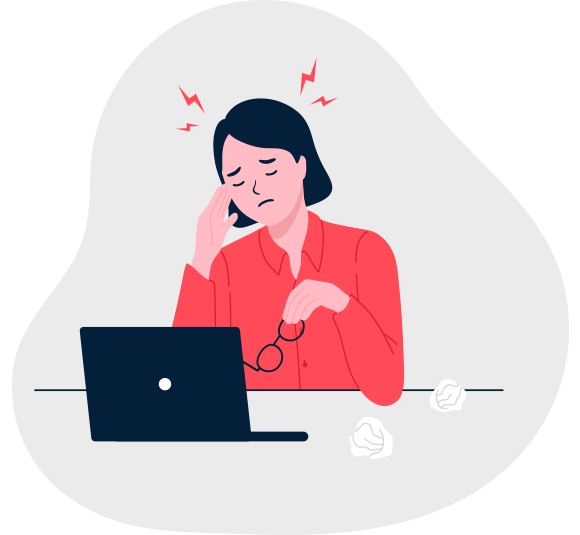
Headaches during the menopause
Also sometimes referred to as hormone headaches, the changes in your hormone levels may unfortunately lead to painful headaches. There’s been some suggestions that if headaches were a symptom during your period, it might be more likely you could suffer from them during the menopause too.
There are different types of headaches that might rear their ugly head during the menopause which are:
- Migraines – intense pain that tends to be on one side of the head or behind the eyes. You might also see flashing light and feel nauseous.
- Tension headaches – also known as stress headaches which gives a tight feeling across the forehead or back of the head.
- Sinus headaches – if your sinuses are inflamed you may experience facial pain and congestion.
A headache on top of lack of sleep, anxiety, hot flushes or any other symptoms you are experiencing can be hard to deal with but there are some changes you can make which may help.
Firstly, make a note of any food or drink such as chocolate, alcohol or wine that may be triggering your headaches and try to eliminate these from your diet if you notice a pattern emerging. It’s also important to eat regularly as if you skip meals your blood sugar levels can drop leading to headaches as one of the side effects.
Feeling stressed? Try some relaxing meditation or light exercise such as yoga to help increase feelings of calm and reduce stress. This might also help you sleep better, a lack of rest can also cause headaches.
If you’re looking for a natural supplement rather than something medicinal, a natural menopause remedy such as Promensil Red Clover may also help to keep menopause symptoms at bay. Promensil has a supplement for every stage of the menopause journey.
As always, it’s important to discuss any change in symptoms with your healthcare professional and see what help and advice they can offer.
